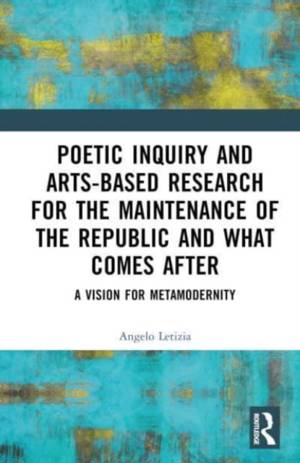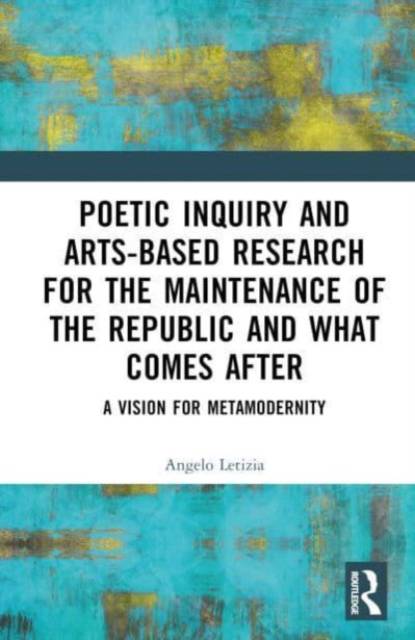
- Afhalen na 1 uur in een winkel met voorraad
- Gratis thuislevering in België vanaf € 30
- Ruim aanbod met 7 miljoen producten
- Afhalen na 1 uur in een winkel met voorraad
- Gratis thuislevering in België vanaf € 30
- Ruim aanbod met 7 miljoen producten
Poetic Inquiry and Arts-Based Research for the Maintenance of the Republic and What Comes After
A Vision for Metamodernity
Angelo J LetiziaOmschrijving
This book demonstrates the power of poetry and the ways in which academics can utilize poetry to go beyond the scholarly realm and create works of art which, unlike traditional academic works, problematize and question reality rather than simply describe it.
Through its disciplinary, scholarly, and personal construction, poetry holds the potential to "erase" what we know and build a new world. The purpose of this book is to show how professors and students who write poetry can be emboldened to imagine new forms of government and political arrangements, promote social change and challenges to power structures, and detail radical ways of living with each other more generally. Conceiving of the "republic" as a democratic republic, or representative democracy, the author calls attention to the idea of poetry as evidence-based, which, despite the absence of verifiable data, nonetheless gives structure to ideas and experiences filtered through human cognition, imagination, and senses.
Grounded in theory, arts-based research, and poetic inquiry and supplemented with practical class assignments, pedagogical strategies, and reflective items, this volume will appeal to faculty, scholars, and postgraduate students working across research methods, arts-based research and practice, and language and linguistics.
Specificaties
Betrokkenen
- Auteur(s):
- Uitgeverij:
Inhoud
- Aantal bladzijden:
- 236
- Taal:
- Engels
Eigenschappen
- Productcode (EAN):
- 9781032562827
- Verschijningsdatum:
- 19/12/2023
- Uitvoering:
- Hardcover
- Formaat:
- Genaaid
- Afmetingen:
- 152 mm x 229 mm
- Gewicht:
- 503 g

Alleen bij Standaard Boekhandel
Beoordelingen
We publiceren alleen reviews die voldoen aan de voorwaarden voor reviews. Bekijk onze voorwaarden voor reviews.











